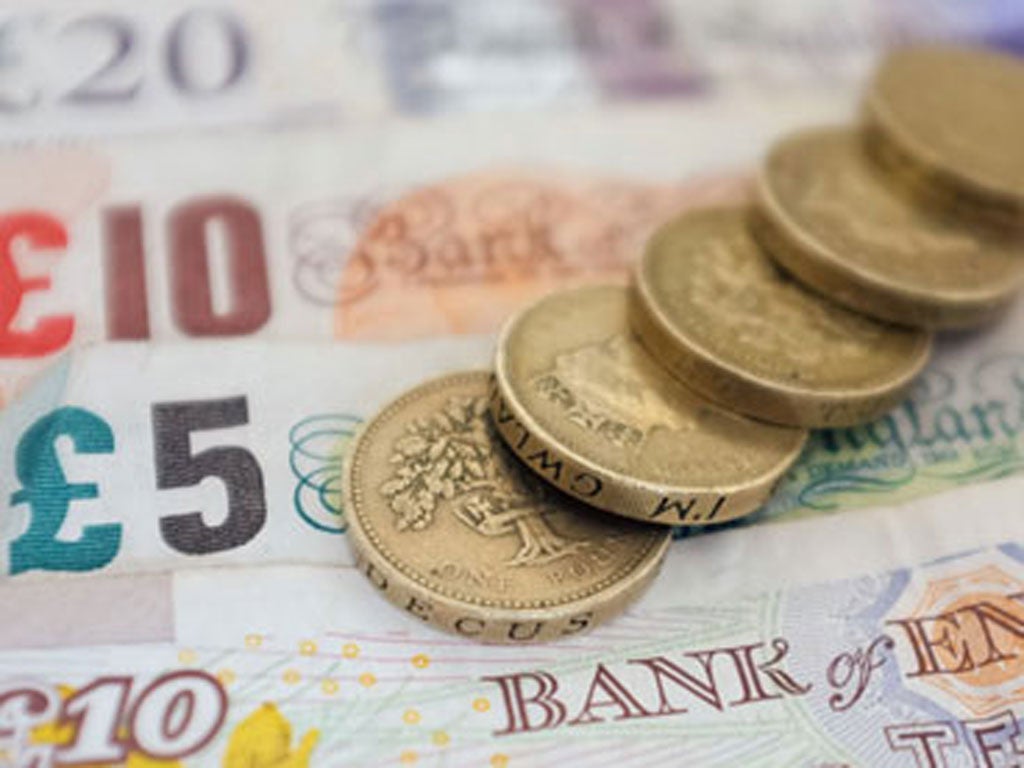Inflation falls to lowest level for nearly three years
But the figures are likely to hurt pensioners and those on benefits, as last month's figures will be used to calculate future payment increases - but do not include the energy price rises announced recently.

Your support helps us to tell the story
From reproductive rights to climate change to Big Tech, The Independent is on the ground when the story is developing. Whether it's investigating the financials of Elon Musk's pro-Trump PAC or producing our latest documentary, 'The A Word', which shines a light on the American women fighting for reproductive rights, we know how important it is to parse out the facts from the messaging.
At such a critical moment in US history, we need reporters on the ground. Your donation allows us to keep sending journalists to speak to both sides of the story.
The Independent is trusted by Americans across the entire political spectrum. And unlike many other quality news outlets, we choose not to lock Americans out of our reporting and analysis with paywalls. We believe quality journalism should be available to everyone, paid for by those who can afford it.
Your support makes all the difference.Inflation has fallen to its lowest level for nearly three years, official figures showed this morning, easing pressure on consumers.
But the figures are likely to hurt pensioners and those on benefits, as last month's figures will be used to calculate future payment increases - but do not include the energy price rises announced recently.
The Office for National Statistics said the Consumer Prices Index (CPI) fell to 2.2 per cent in September, down from 2.5 per cent in August and the lowest level since November 2009.
While CPI is now less than half the 5.2 per cent seen a year earlier, big gas and electricity price rises announced this month are expected to push it higher in future months.
The ONS said the recent spate of energy bill increases would likely lead to similar increases in inflation as seen last year, when utility price increases added 0.45 per cent to CPI.
Vicky Redwood from Capital Economics said other factors including rising food prices and university tuition fees will also add to future inflation figures.
However she said she expected the annual rate to stay close to the Bank of England's 2 per cent target.
This could pave the way for the bank to announce an extension of its quantitative easing programme later this year.
Rising fuel prices also put upward pressure on CPI last month, when petrol rose by 3.9p a litre between August and September compared with a fall of 0.3p a year ago, according to the ONS.
Experts fear rising food prices will also push inflation back up.
Today's figures showed the Retail Prices Index (RPI), which includes housing costs, also eased back last month, to 2.6% from 2.9 per cent in August.
The lower rate of inflation will also offer relief to retailers, as the annual increase in business rates, due in the spring, is determined by September's RPI. However, some of Britain's leading retailers are campaigning for rates to be frozen, as the escalation of costs was preventing them from opening new stores and driving the economy.
In a letter to the Financial Times, Ian Cheshire, chief executive of Kingfisher, Charlie Mayfield, chairman of the John Lewis Partnership, and Andy Clarke, chief executive of Asda, called for the moratorium.
Separately, the ONS said factory gate inflation rose to 2.5 per cent – higher than analyst forecasts of 2.2 per cent; while input prices dropped 1.2 per cent, as the price of oil and imported metals came down. The ONS said house prices rose 1.8 per cent on the year in August, down from a 2 per cent increase in July.
Join our commenting forum
Join thought-provoking conversations, follow other Independent readers and see their replies
Comments